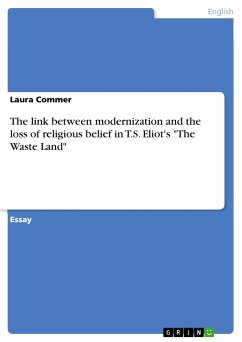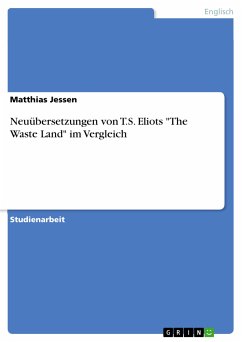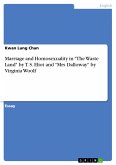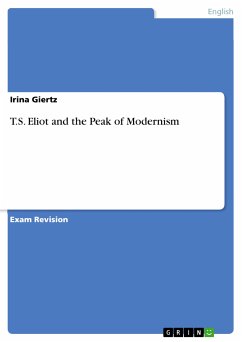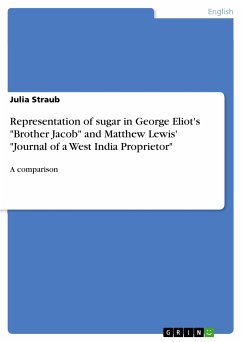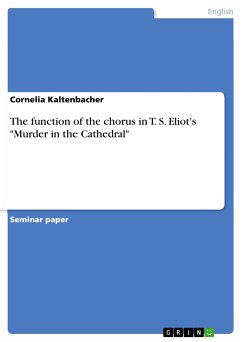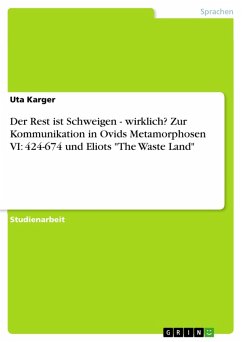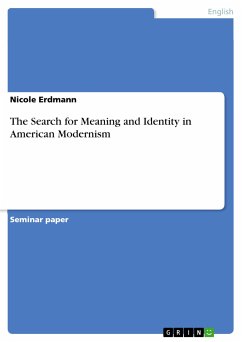Essay from the year 2015 in the subject English Language and Literature Studies - Literature, , language: English, abstract: When World War I and II shake the European society at the beginning of the 20th Century first the fascination and national pride, then the horror and deadly fear of war had an immense impact on literature. High expectancies and the insurance of an early victory were used to make soldiers comfortable and take their fear for the upcoming fight. Nevertheless, it didn't take long until the mood and the cruel reality washed away the propaganda messages. Leaving behind speechless and traumatized people, afraid and unable to express their emotions in long texts, poems, their meaning hidden in a few lines, became the most popular way of expressing the unspeakable things soldiers had to deal with on the battlefield. Famous writers such as T.S. Eliot used this form of expressing emotions to catch the zeitgeist of this period in poems like "The Waste Land". Eliot's whole poem reflects the hopeless atmosphere of a time in which the people were angry about the events that happened and therefore, lost their religious belief. Religion and especially God was often used in war propaganda. Furthermore, many people asked themselves that if God really exists would he not have prevented the war and the death of so many people? One can "interpret 'The Waste Land'as representing the general loss of spiritual belief during the opening decades of the century" (Roston 50).
Dieser Download kann aus rechtlichen Gründen nur mit Rechnungsadresse in A, B, BG, CY, CZ, D, DK, EW, E, FIN, F, GR, HR, H, IRL, I, LT, L, LR, M, NL, PL, P, R, S, SLO, SK ausgeliefert werden.

